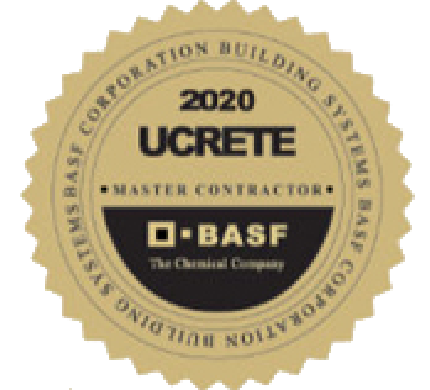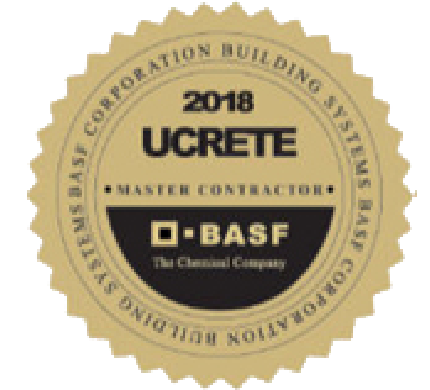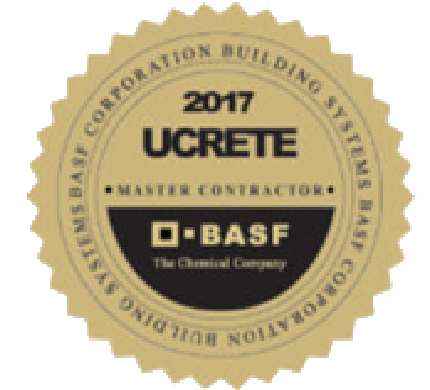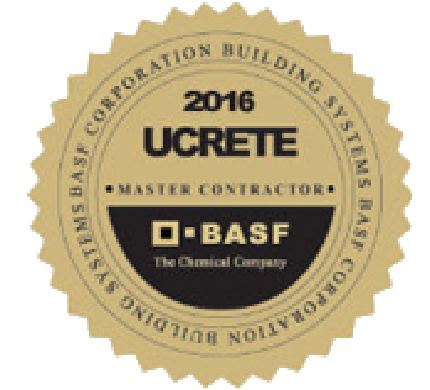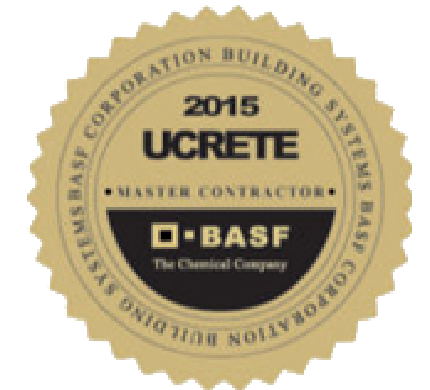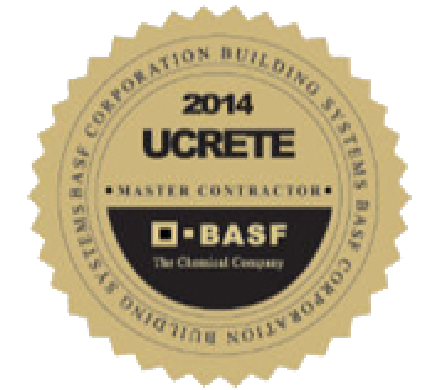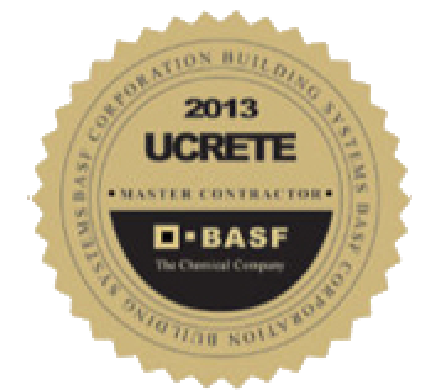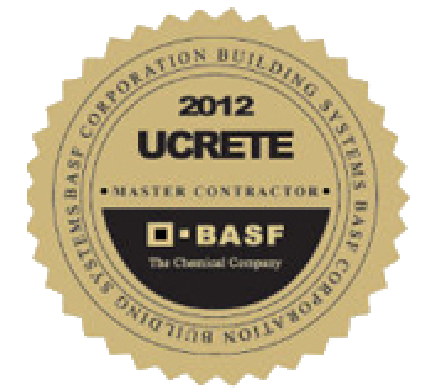What You Need to Know About Floor Cove Base and Curbing
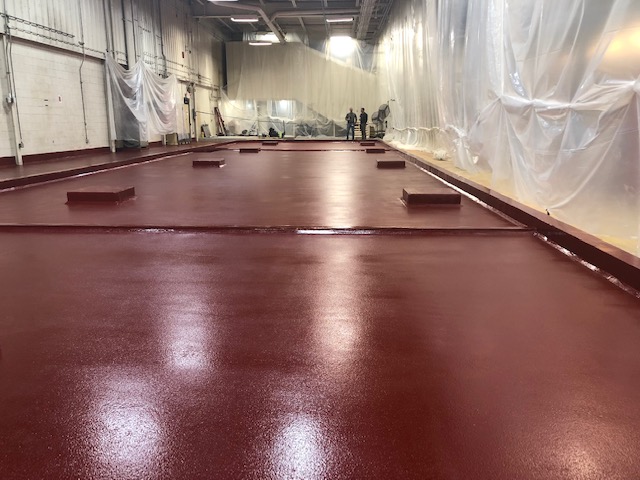
Are you installing a new industrial floor system? Perhaps your current floor is due for a face-lift?
Floor cove base and curbing, whether for a food processing area or staff breakroom, are essential for a seamless, sanitary environment.
Here’s what you need to know about floor coving, and why it’s crucial to the sanitation of your environment.
The Basics of Floor Cove Base and Curbing
You’ll see a cove base in most areas where there is already an existing resinous floor. They typically have a 4-inch radius, but can also be a “cant” in which there’s a 45-degree angle where the floor meets the wall. Food processing environments often have concrete curbing. We protect these curbs with urethane concrete and create a cant cove where the base of the curb meets the floor. This prevents bacteria, debris, and dust from collecting in the seam between the floor and the wall.
Floor cove base and curbing are installed before the flooring system so that the flooring system can be tied into the cove.
Where You Need to Install Floor Cove Base
Floor cove base spans across all floor coverings. Vinyl cove base is a quick option that is sealed with glue, but it is not long-lasting, nor does it fulfill food safety guidelines for food processing facilities. A vinyl base is a better solution for a dry environment such as an office or lobby where deep cleaning and heavy impacts are not a concern.
A resinous base should be installed for:
- Wet/Washdown Environments: Food Processing, Breweries, Beverage Facilities
- Dish Rooms, Washdown Rooms
- Waste Disposal Areas
- Commercial Kitchens
- Employee Restrooms/Locker Rooms
- Employee Breakrooms
- Anywhere that Water Needs to be Contained
- Secondary Containment of Chemicals
Because they are regularly exposed to contaminants and corrosive by-products like fats, hot oil, blood, sugar solutions, and chemicals, food and beverage processing environments have mandated flooring specifications. Coving is also required for pharmaceutical lab flooring.
A Seamless, Integral Cove Base
Depending on the material being used and your type of facility, we offer several kinds of floor coving options. Epoxy coving and urethane concrete are used to create an integral cove base, where the cove and flooring are sealed, rather than the coving sitting atop the flooring surface.
Integral cove bases are ideal in environments that require a flooring system that prevents seams, joints or crevices that can trap dirt or bacteria. Integral, mortar cove bases are usually installed at a height of four inches but can be two or six inches high as well.
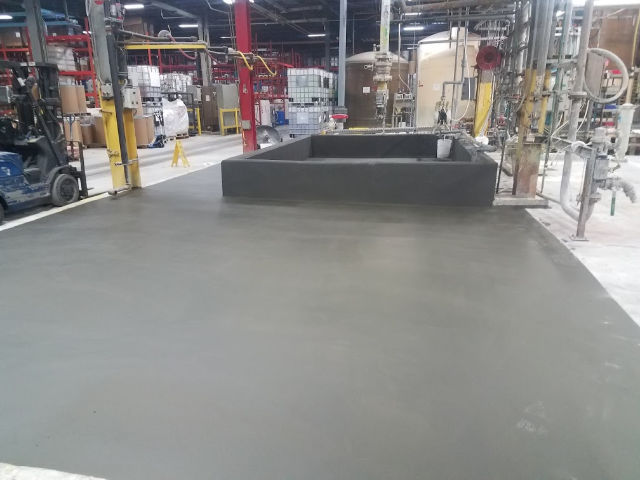
About Urethane Concrete Flooring and Cove Base
Urethane Concrete Flooring is a kind of heavy-duty floor finish system that can easily implement integral cove bases. It is used in the most demanding of industrial environments and provides a layer of strong polyurethane flooring with powerful protection for new or existing concrete surfaces. This means it outperforms epoxy flooring in its durability and its resistance to physical abrasion, moisture, chemicals, and bacteria.
This floor coving used in urethane concrete floor finishes is virtually seamless, providing a wall-to-wall, cove-to-cove thermal shock-resistant floor ideal for food and beverage facilities. It’s also ideal for pharmaceutical and chemical manufacturing, electronics, retail, healthcare, and aviation facilities.
How is a Mortar Cove Base is Installed?
Installing an integral cove base looks different in each facility, but the process of applying a mortar-based coving system will look something like this:
- Mechanically prep wall/curb surface and prime as needed
- Trowel epoxy mortar or urethane concrete mortar
- Apply decorative aggregate OR topcoats as needed
Depending on the size of your facility, this can be a fairly quick process.
Take a look at the coving and floor finish we created in this Cincinnati facility for a slip-resistant, wear-resistant, and chemical-resistant flooring solution that is not only safe but looks great too. In a 1,200-square-foot space, we were able to transform their washroom in just a day and a half.
This space in Indiana was quite a bit larger, but we turned their plain concrete slab floor into a safe industrial workspace, complete with a floor cove base in only one week’s time. At 4,400-square feet with an 8-inch cove base along the entire wall, this was no small feat.
How to Clean Integral Floor Coves
Integral floor coving is so simple to keep clean. You clean it just like you do the rest of your floor, using a mop or rags for the cove base. And the best part is you use the same cleaning products for your floor and your floor coves, making it ideal for easy care. We offer our SS 915 Degreaser/Cleaner for epoxy and urethane flooring systems.
Integral Floor Coves: A Great Solution for Sanitary Spaces
Floor coving can transform your space into a clean, safe space that helps prevent the collection of dirt, dust, debris, and bacteria. At Surface Solutions, we are committed to providing you with the best resinous flooring system for your facility.
See why we’re the preferred industrial flooring experts In Indianapolis, Cincinnati, Chicago, and Louisville. Throughout the Midwest, we work diligently to ensure your floor is durable, safe, and hygienic. Let us transform your existing industrial floor! Contact us today to request more information.
NEED A FLOORING CONSULTANT?
Call us now at 317-388-8000 or click the button to plan your project today

COMPANY AWARDS
